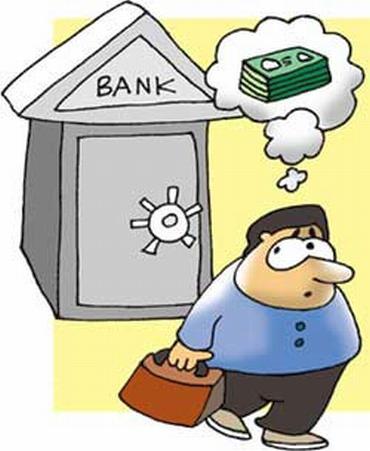Photographs: Uttam Ghosh/Rediff.com Harshala Chandorkar
While we must always help our friends and relatives at the time of need, it is equally important for us to know the impact of such favours on our financials.
As we all know financial institutions may ask for guarantee from the borrower against the loan amount issued. Some of us think signing a guarantee document is mere a formality but it is very important for you to understand how signing a guarantee document for someone can impact your credit score or history.
We must always help our friends and relatives at the time of need. But it is equally important for you to know the impact of your favour on your financials.
Let’s understand the same with the help of an example.
Ranjeet, 32, a well established computer engineer, who has settled in Bangalore, planned to buy a car for himself. He applied for a loan in a reputed bank in Bangalore. On immaculately collating all the requisite documents and having an impressive salary certificate attached to his loan application, Ranjeet was confident of getting the credit sanction within days.
But he was shocked when his loan application was rejected by the bank. This fact surprised Ranjeet as he had always been prudent with his financial transactions and never defaulted on any of the credit payments. His credit card statements have been regularly showing no outstanding amount and no days past due, month-on-month.
The author is Senior Vice President -- Consumer Relations, CIBIL.
Guaranteeing a friend's loan? Watch out!
Photographs: Uttam Ghosh/Rediff.com Harshala Chandorkar
He was then advised by the bank to get a copy of his credit history from CIBIL. Ranjeet did some research and found out that CIBIL maintains records of an individual’s payments pertaining to loans and credit cards. Banks and other lenders submit these records to CIBIL on a monthly basis. This information is then used to create a Credit Report, which is provided to lenders in order to help evaluate and approve loan applications.
On getting a copy of his Credit Report from CIBIL, Ranjeet saw that the discrepancy in his credit history and credit score had nothing to do with his own credit behaviour. It was due to the defaulting of the EMIs on a loan taken by his friend, that Ranjeet’s Credit Report showed a negative impact. Still wondering why? Because Ranjeet was the guarantor on this friend’s home loan which was taken three years back!
It is important to understand that as a guarantor on any form of loan, you are equally responsible for ensuring the repayment of the loan. A guarantor pledges to repay a loan on behalf of a third party who has taken the loan. Hence, s/he provides a guarantee to the lender, that s/he will honour the obligation, in case the principal applicant (in this case, Ranjeet’s friend) is unable to do so.
Guaranteeing a friend's loan? Watch out!
Harshala Chandorkar
Also, on the other hand, a guarantor’s credit score may be checked by banks depending on their credit sanctioning policies. However it is always a prudent practice to have a guarantor who has a higher credit score to guarantee your loan facility. Since Ranjeet was not under any financial liability, his friend’s loan was sanctioned immediately. But his friend’s default on the loan repayment hit Ranjeet’s Credit Report and credit score negatively.
Information on the default of such payments appears in the “Accounts” section of the guarantor’s Report. Hence, it’s imperative that the guarantor on the loan should ensure that the borrower pays the EMIs regularly on the due date, month on month.
But surely, all’s not lost yet.
By ensuring that his friend pays all his dues to the bank and regularly starts paying the loan EMIs, Ranjeet can rebuild both his friend’s and his own credit history and score. He can then re-apply for the loan and fulfill the aspiration of owning a car.
Financial discipline coupled with prudent credit management will ensure that Ranjeet and his friend enjoy all the benefits associated with having and building a good credit history and credit score.




Comment
article